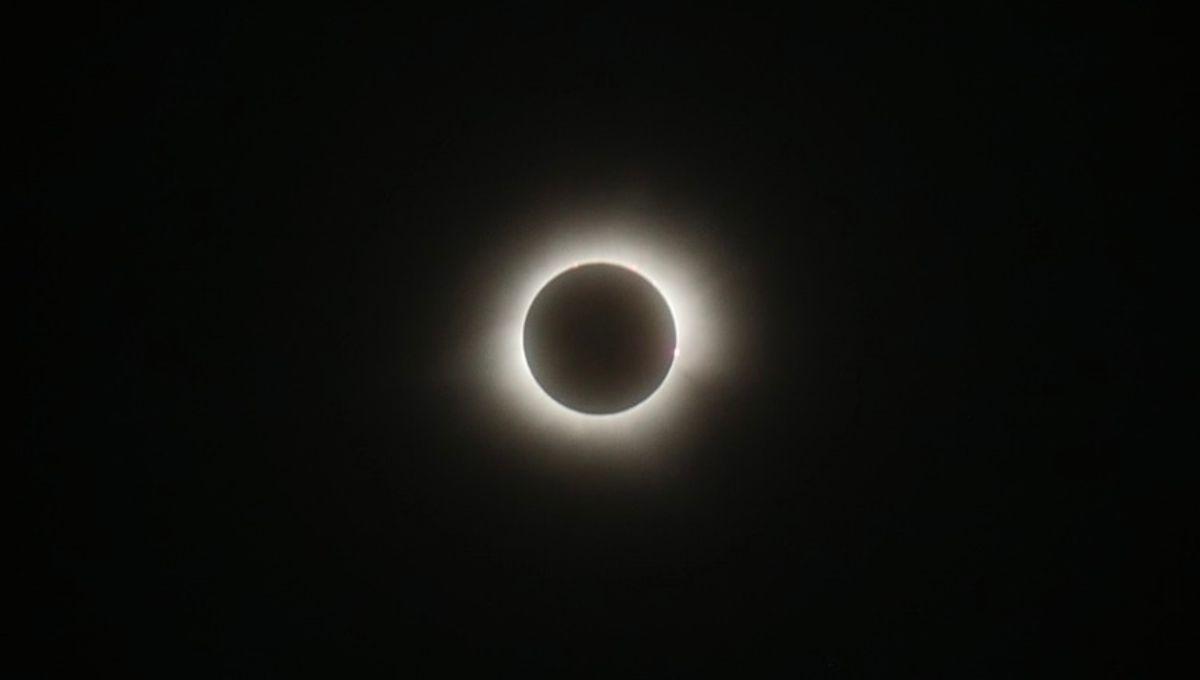If you have heard of a dramatic celestial spectacle or an apocalyptic scenario happening next week, let us reassure you that it won’t happen. Our entire planet is not going to be plunged into darkness for 6 minutes next Saturday, despite online claims. The end of our world, engulfed by the fiery plasma of an aged Sun, is many billions of years away yet. The internet can sometimes be a giant game of telephone, and things get more and more distorted. There is an exciting celestial event coming, but it's not next week.
The rumor is that darkness will fall across the whole of Earth for 6 minutes on August 2. If we were truly nitpicking, we could say: duh…. The planet experiences darkness every day, it’s called night. But in this apocalyptic scenario, they mean that the whole planet will be in darkness, even the sunny side. That cannot take place. If an evil billionaire wanted to shield the whole planet from the Sun, that would take a very big object – even bigger than Earth, if you wanted perennial nights. So, where is the confusion coming from? There is going to be an incredible, record-breaking total solar eclipse on August 2, but it is not happening next week – it’s in 2027. You don't even need to make stuff up about the 2027 eclipse to get people excited about it. It's going to be a record-breaking, phenomenal event. The path of totality will pass over Luxor, Egypt, where it will be at its maximum, which will be a whopping 6 minutes and 23 seconds long. This is a very long period of totality. To compare, the Great American Eclipse of 2017 was 2 minutes 40 seconds, and the one of April 2024 was 4 minutes 28 seconds. The theoretical possible maximum for a total solar eclipse is 7 minutes 32 seconds, but to get even close to that, we'll need to wait until July 16, 2186, with a maximum of 7 minutes and 29 seconds. This means the August 2, 2027, eclipse is going to be the longest total eclipse for the rest of the century. The second longest, at 6 minutes and 7 seconds, will be on May 22, 2096. The darkness also won’t fall across all of Earth; the path of totality is stretching, at most, to 258 kilometers (160 miles). Billions will be able to see a partial eclipse in Africa, Europe, and Asia, with the path of totality crossing places filled with ancient and modern history. From Cadiz in Spain to Tangier in Morocco, Benghazi to Luxor, and Mecca to the tip of the Horn of Africa. This will truly be an incredible eclipse, whether you get a chance to see it in person or online. It won't just look good, though; astronomers will use it to test Einstein’s theory of relativity, and plenty of other science. When something is so naturally spectacular, it's baffling why people feel the need to make stuff up. The truth is amazing on its own without the need for embellishments. We'd also like to point out that there is also going to be a total solar eclipse next year, on August 12, visible from Iceland to Spain, because they happen roughly every 18 months, but Vikings and tapas apparently do not sell the apocalypse quite as well. It’s so much easier to worry people by claiming the darkness descending is linked to something like an ancient temple to the sun god Ra, rather than pointing out you can see this regular disappearance of the Sun while drinking sangria on the beach or floating down the Nile or, if you're lucky, standing in your backyard.





